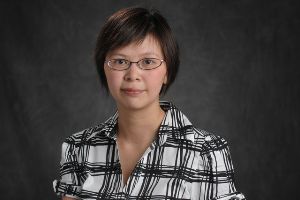A team of UCLA researchers has received a $2-million, four-year grant from the National Science Foundation (NSF) Office of Frontiers in Research and Innovation to explore new approaches to assembling nanoscale materials for use in a variety of manufacturing and research applications.
Known as two-dimensional layered materials, or 2DLMs, this emerging class of materials shows breakthrough potential in fundamental materials science and technologies, including electronics, optoelectronics, bioelectronics, energy conversion and energy storage.
 Yu Huang, associate professor of materials science and engineering. Credit: UCLA
Yu Huang, associate professor of materials science and engineering. Credit: UCLA
“Two-dimensional layered materials have great promise to open up new technologies that take advantage of their ultra-thin properties,” said Yu Huang, the project principal investigator and an associate professor of materials science and engineering at the UCLA Henry Sameuli School of Engineering and Applied Science. “We are looking to understand their fundamental electronic, chemical and physical properties and explore manufacturing processes that are low-cost and simple for industry to adopt.”
Co-principal investigators on the research include Kang L. Wang. UCLA’s Raytheon Professor of Electrical Engineering; Xiangfeng Duan, UCLA’s Howard Reiss Career Development Chair in Chemistry & Biochemistry; and James De Yoreo, chief scientist for Materials Synthesis and Simulation Across Scales at Pacific Northwest National Laboratory and an affiliate professor of materials science and engineering at the University of Washington.
The best known 2DLM is graphene, a sheet of carbon just one atom thick. The UCLA group will concentrate on 2DLMs comprised of well-defined crystalline structures such as transition metal dichalcogenides. They will explore the scalable production of these versatile 2DLMs using methods that are relatively simple and inexpensive.
Specifically, the team will research an approach for assembling electronics-grade, continuous films of two-dimensional layered materials from nano-scale plates suspended in liquids. This potentially low-cost method could allow for excellent control of chemical composition, structure and dimensions, and therefore could be individualized to specific applications. A range of 2DLMs could enable transformative advances across a wide range of traditional and emerging technologies.
Source: http://www.ucla.edu/